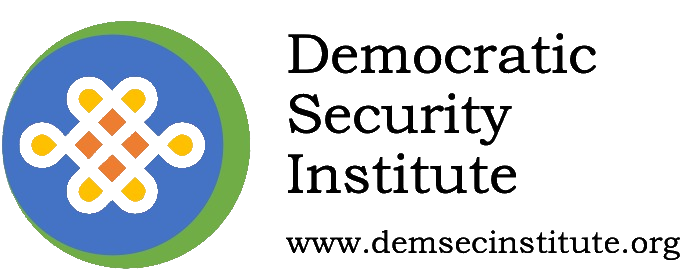The West must see Georgia as a warning, pointing to the growing sophistication of authoritarian political technologies, which have implications for foreign elections as well as those at home.
Read full article on Politico’s website
Michael Hikari Cecire is an adjunct associate professor at Georgetown University’s Center for Security Studies and an adjunct lecturer at the University of Pennsylvania’s Fels Institute of Government.
In the waning hours of last Saturday night, the initial euphoria among Georgia’s opposition and pro-democracy activists began turning into desperation, as the Central Election Commission (CEC) announced the preliminary results of the country’s parliamentary election.
Earlier, independent polling had suggested the opposition had collectively overcome the increasingly autocratic ruling Georgian Dream party (GD). But the preliminary results showed something entirely different: GD had not only won but, with 54 percent of the vote, it had improbably made its best ever showing since first coming to power in 2012.
The turnaround in GD’s fortunes seemed, in the definitional sense of the word, incredible. So, what happened?
As it stands, early clues point to highly sophisticated vote manipulation on a massive scale, with GD using its rural advantage to inflate its electoral showing, then utilizing recent electoral reforms to validate and cement it. And such patterns suggest increasingly sophisticated autocratic political technology, as well as the presence of congealing illiberal forces that continue to make strides against a beleaguered democratic world.
The evident confusion surrounding Georgia’s final election results was reflected in the statements of international observers. The joint observation mission led by the Organization of Security and Co-operation in Europe was particularly notable for its unusual servings of criticism, seemingly asking (amid mealy mouthed descriptions) whether GD had, indeed, stolen the election.
Flanked by leaders from the main opposition parties, the Georgian president was more declaratory: The election was stolen.
In addition to the results’ discrepancy with polling, however, it was also shocking that exit polls — which had, in the past, often tracked official results — got it so wrong this time. As was the fact that parallel vote tabulation conducted by independent election watchdog ISFED matched CEC numbers.
What happened here? In competitive authoritarian states, most vote-rigging is done in the weeks and months leading up to an election. Regimes keen on a democratic-seeming election tend to use state power to bribe, convince, cajole and coerce voters well ahead of election day. In Georgia’s case, however, that likely only tells part of the story. While GD’s abuse of administrative resources is a major factor, its election day machinations may have proven more consequential.
Local observers and opposition elements are now alleging a complex, large-scale voter fraud scheme, where cadres of repeat voters and GD-backed groups essentially conducted virtual ballot stuffing in order to run up their numbers. Early analyses seem to confirm these allegations, with CEC data showing major irregularities in rural districts.
While voting trends in urban opposition strongholds appear consistent with fair practices — vote distributions correspond naturally to turnout — in rural districts, patterns deviate sharply, with significant discrepancies between turnout and vote share. In effect, the data suggests that GD leveraged rural areas with reduced oversight, inflating turnout and skewing vote counts to create an artificial majority.
The energy and resources GD used to lend these results a veneer of credibility is also pernicious. If Russia’s “democracy” is a flimsy cardboard cutout, Georgia’s manipulations look like a Hollywood movie set by comparison.
Typically, switching to a fully proportional parliamentary system and deploying American electronic voting machines to most (though not all) polling sites would be seen as constraints on electoral shenanigans. But in this case, it seems they actually launder vote manipulations. Indeed, electronic voting machines can count ballots securely, but they’re only as good as their input, and a proportional system is only as good as the integrity of the counted votes. Thus, these electoral accoutrements — though structurally meaningful — lent a false sense of security to election day.
And while GD has been credibly accused of vote manipulations in the past, those cruder efforts likely didn’t change the overall outcome. This year, however, the government’s reforms, electronic voting machines and roving groups of observers all created a reassuring veneer, disguising the bigger operation underneath.
Friendly authoritarians, who were among the first to congratulate GD, were another factor too. Russia’s likely the principal culprit and chief benefactor behind GD’s authoritarian turn — especially given Moscow’s past GD endorsements and the way the party’s rhetoric and policies have now come to mirror Moscow’s. But Azerbaijan and Hungary, which came out strongly in favor of GD, are also notable.
For example, despite previously favoring former Georgian President Mikheil Saakashvili and his United National Movement, Azerbaijan broke hard for GD after it’s pro-Moscow turn. And now it is hailing the country’s victory over “Western meddling.” Meanwhile, Russia-friendly Hungary has also emerged as a reliable GD ally, the country’s strongman Viktor Orbán even arriving in Tbilisi on Monday as part of the ruling party’s victory lap.
However, Hungary’s role isn’t purely ideological — in fact, Orbán once happily campaigned for Saakashvili’s government against GD. But while well-documented, its role as a straw for Russian influence in Europe and Eurasia often goes under-appreciated. In fact, Georgian civil society and opposition parties say GD mirrors strategies used by Hungary’s ruling Fidesz party, which pioneered leveraging rural voting power to stay in power.
In a recent statement, U.S. Secretary of State Antony Blinken joined President Salome Zourabichvili and a growing chorus of European partners in rejecting the undemocratic election. What comes next isn’t entirely clear, but mass protests have already erupted in response to Zourabichvili’s exhortations.
On the one hand, GD is almost certainly prepared — it has always viewed mass protests as likely, and the party has contended with them throughout the year. On the other hand, those protests also showed the limits of its security apparatus. GD might be able to suppress small or isolated demonstrations, sometimes violently, but it likely can’t put out larger mass protests without deploying patrol police or the military — which are widely seen as less personally loyal to GD.
For their part, the U.S. and Europe can’t allow GD to consolidate its undemocratic takeover. And this will require significant pressure, potentially even including new aid suspensions and individual sanctions.
Georgia’s ruling party has long relied on the U.S. and Europe for budgetary and economic aid — it’s also relied on the West’s inattention toward its transnational patronage schemes. Despite GD’s growing Russia-linked economy, however, Moscow (or others) is unlikely to replace those funds over the long term. And while GD probably hopes that a Donald Trump White House simply wouldn’t care, this is risky. Even if Vice President Kamala Harris loses, top congressional Republicans have often been the most hawkish when it comes to Georgia, and ultimately GD is a bit player with little to offer Republicans.
More broadly, the West must see the country as a warning, pointing to the growing sophistication of authoritarian political technologies, which have implications for foreign elections as well as those at home.
For democracies to regain their edge, they must learn to go on the offensive in informational, political and strategic spaces. Nostalgia for bygone stability isn’t enough — only meeting the present moment with a plan to roll back authoritarianism will do.

